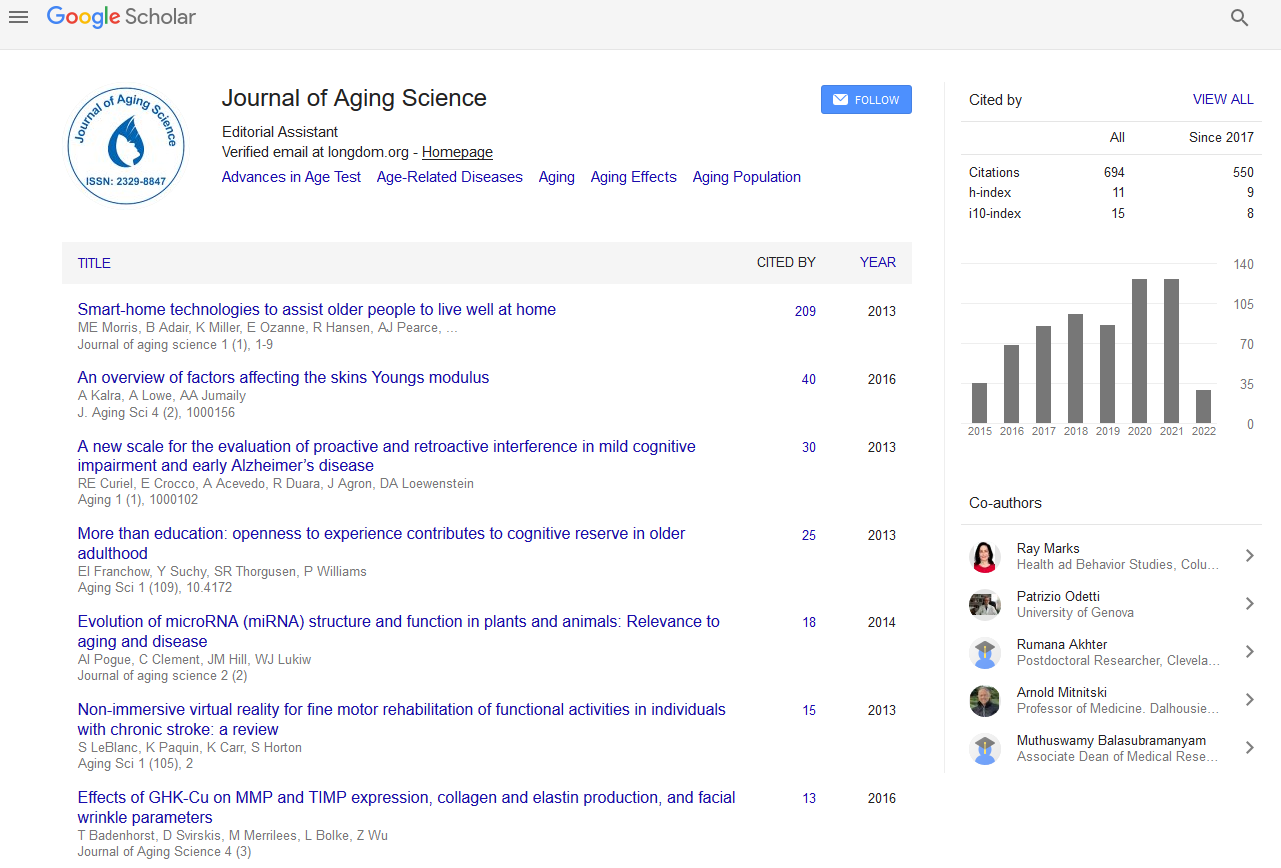PMC/PubMed Indexed Articles
Indexed In
- Open J Gate
- Academic Keys
- JournalTOCs
- ResearchBible
- RefSeek
- Hamdard University
- EBSCO A-Z
- OCLC- WorldCat
- Publons
- Geneva Foundation for Medical Education and Research
- Euro Pub
- Google Scholar
Useful Links
Share This Page
Journal Flyer

Open Access Journals
- Agri and Aquaculture
- Biochemistry
- Bioinformatics & Systems Biology
- Business & Management
- Chemistry
- Clinical Sciences
- Engineering
- Food & Nutrition
- General Science
- Genetics & Molecular Biology
- Immunology & Microbiology
- Medical Sciences
- Neuroscience & Psychology
- Nursing & Health Care
- Pharmaceutical Sciences
PROGRESSIVE BIOCHEMICAL DEFECTS DURING AGING: THEIR ATTENUATION BY SIMULTANEOUS ACTIVATION OF NRF2 AND ELEVATION OF ANTIOXIDANT COMPOUNDS
International Conference on Aging & Gerontology
August 8-9, 2016 Las Vegas, USA
Kedar N. Prasad
University of Iowa, USA
Posters & Accepted Abstracts: Aging Sci
Abstract:
Broadly, aging can be defined as a gradual and progressive decline in cellular functions leading to dysfunction of the organs. Decades of research on aging have identified several biochemical defects that include increased oxidative stress, mitochondrial dysfunction, chronic inflammation, impairment of proteasome and lysosomal-mediated proteolytic activity, and shortening of the length of telomeres. I propose that increased oxidative stress precedes other biochemical defects. Oxidative damaged cells initiate chronic inflammation and together with other cellular defects participate in the progression of aging. Therefore, reducing oxidative stress and chronic inflammation simultaneously may be one of rational choices for healthy aging. I propose that in order to optimally reduce these biochemical defects simultaneously, it is essential to enhance the levels, antioxidant enzymes and phase-2- detoxifying enzymes and dietary and endogenous antioxidant compound at the same time. Antioxidant compounds are increased by supplementation; however, increasing the levels of antioxidant enzymes and detoxifying enzymes requires activation of the nuclear transcriptional factor-2/ antioxidant response element (Nrf2/ARE) pathway that is impaired during aging. Transcription of Nrf2 and its binding to ARE is reduced in aged animals that are restored by antioxidant treatment. Activation of Nrf2 and antioxidant compounds also reduces chronic inflammation. I propose a mixture of micronutrients that can simultaneously activate the Nrf2/ARE pathway and enhance antioxidant compounds levels for optimally reducing oxidative stress and chronic inflammation.
Biography :
Email: knprasad@comcast.net


